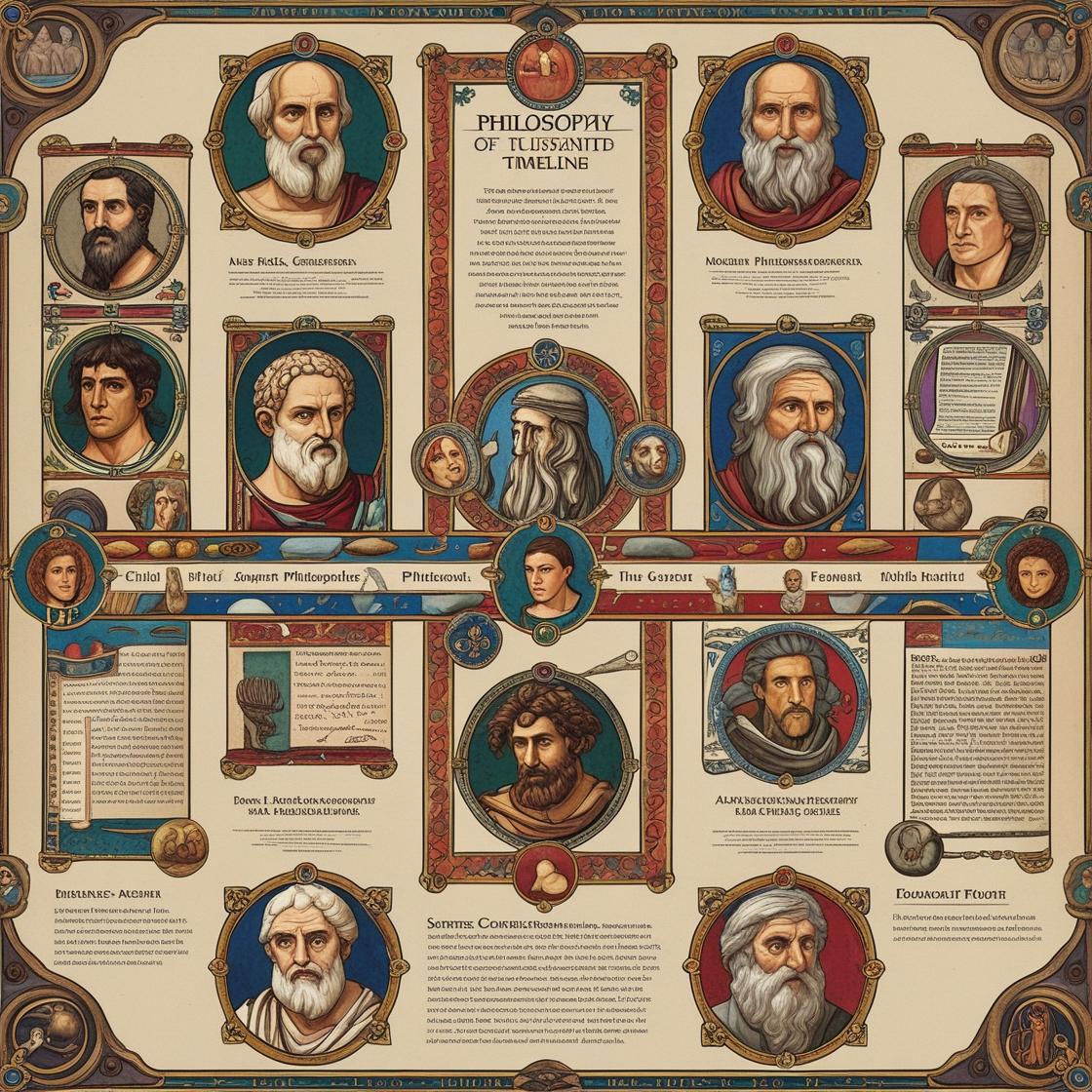
Philosophy, often described as the love of wisdom, has evolved alongside humanity’s quest to understand existence, knowledge, and ethics. From its roots in ancient civilizations to the intricate modern theories that shape our worldview today, the philosophical timeline reflects our deepest intellectual pursuits. In this article, we explore the history of philosophy, spanning ancient to modern thought, and offer insights on how to engage with this rich tradition meaningfully.
The story of philosophical history begins in ancient times, where thinkers sought to explain the world beyond mythological narratives. Ancient philosophy emerged in both Eastern and Western cultures, each developing distinct approaches to questions of reality, morality, and human nature.
Western philosophy began in Ancient Greece with the pre-Socratic philosophers like Thales, Anaximander, and Heraclitus. They explored cosmology, substance, and change. Socrates later revolutionized philosophical inquiry with his emphasis on ethics and the Socratic method of questioning.
Key philosophers such as Plato and Aristotle expanded on these ideas. Plato introduced the theory of forms and emphasized idealism, while Aristotle laid the groundwork for logic, biology, and ethics through empirical observation. Roman thinkers like Cicero and Seneca integrated Greek philosophy with Roman pragmatism, emphasizing stoicism and civic duty.
Eastern philosophy during the same period flourished in India and China. In India, the Upanishads, Bhagavad Gita, and teachings of the Buddha offered profound insights into the nature of self and reality. Indian philosophers like Nagarjuna introduced concepts like emptiness and dependent origination.
Chinese philosophy was dominated by Confucianism, Taoism, and Legalism. Confucius emphasized moral development and social harmony, while Laozi’s Tao Te Ching celebrated natural spontaneity and balance. These traditions influenced governance, art, and daily life for centuries.
The medieval era saw the confluence of religious doctrine and philosophical inquiry. In the West, Christian theology was merged with classical philosophy, while Islamic and Jewish scholars preserved and expanded on ancient Greek thought.
Scholasticism was the dominant method of learning during the Middle Ages. Thinkers like St. Augustine and Thomas Aquinas sought to reconcile faith with reason. Aquinas, in particular, integrated Aristotelian logic with Christian doctrine, creating a robust theological framework that influenced Western philosophy for centuries.
In the Islamic world, philosophers like Avicenna and Averroes translated and commented on Greek texts, especially Aristotle. They contributed significantly to metaphysics, ethics, and the philosophy of science. Jewish philosopher Maimonides worked to harmonize Jewish theology with Aristotelian philosophy.
The Renaissance marked a renewed interest in human potential and classical learning. This period emphasized the value of empirical observation and individual inquiry, laying the groundwork for modern philosophy.
Humanists like Erasmus and Pico della Mirandola championed the dignity of man and the importance of education. The revival of ancient texts inspired a move away from scholastic rigidity toward more personal and scientific modes of thought.
Modern philosophy began in the 17th century with a dramatic shift in methodology and focus. Philosophers started to question traditional authorities and sought to build knowledge based on reason, experience, and scientific investigation.
Rationalists like Descartes, Spinoza, and Leibniz argued that knowledge derives from reason and innate ideas. Descartes’ famous declaration, “I think, therefore I am,” underscores the emphasis on self-awareness and certainty.
In contrast, empiricists such as Locke, Berkeley, and Hume maintained that knowledge comes from sensory experience. This division between rationalism and empiricism shaped much of modern philosophy and influenced later thinkers.
The Enlightenment brought revolutionary ideas about governance, rights, and ethics. John Locke’s theories on liberty and property influenced democratic movements. Rousseau’s concept of the general will contributed to political philosophy and social contract theory.
Kant bridged rationalism and empiricism with his critical philosophy, emphasizing that our understanding is shaped by both sensory data and the mind’s structures. His categorical imperative remains a cornerstone of ethical philosophy.
The 19th century saw the rise of German idealism, existentialism, and utilitarianism. Hegel’s dialectical method proposed that history unfolds through contradictions and their resolutions. Marx, influenced by Hegel, critiqued capitalism and proposed a materialist interpretation of history.
Philosophers like Kierkegaard and Nietzsche focused on individual experience, freedom, and authenticity. Their work laid the foundation for existentialism, which gained prominence in the 20th century through Sartre and Camus.
Phenomenology, developed by Husserl and expanded by Heidegger and Merleau-Ponty, emphasized the structures of experience and consciousness. These thinkers challenged assumptions about objectivity and examined how we engage with the world subjectively.
In the English-speaking world, analytic philosophy emerged, prioritizing logic, language, and clarity. Bertrand Russell, G.E. Moore, and later Wittgenstein contributed to this school, which often addressed issues in science, language, and mathematics.
Pragmatism, an American tradition led by William James and John Dewey, emphasized practical consequences and human experience. It offered a flexible, action-oriented approach to philosophical problems.
Modern philosophy today is a diverse and dynamic field. Post-structuralism, feminism, critical theory, and environmental philosophy have all emerged to address contemporary issues. Thinkers like Michel Foucault and Judith Butler have explored power, identity, and discourse in new ways.
There is also a growing recognition of non-Western philosophical traditions. Scholars are increasingly integrating insights from African, Indigenous, and East Asian philosophies, enriching the global philosophical dialogue.
The impact of philosophy extends beyond academia. Philosophical ideas shape political systems, educational models, and ethical norms. They influence how we think about justice, freedom, and the human condition.
Understanding philosophical history helps us navigate complex modern challenges. It teaches us to think clearly, argue respectfully, and live thoughtfully.
Getting started with philosophy can be overwhelming, but these tips can help:
The history of philosophy is a profound journey through human thought. From ancient philosophy in Greece and China to modern philosophy that tackles current global issues, each era offers tools for understanding the world. By exploring the philosophy timeline and engaging with key philosophers across cultures, we enrich our perspective and equip ourselves for a thoughtful life.
Looking to advertise, promote your brand, or explore partnership opportunities?
Reach out to us at
[email protected]

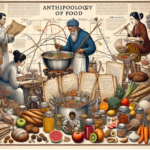


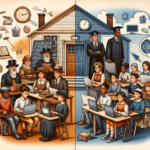
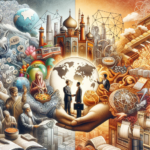

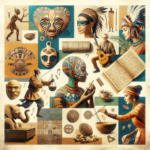
Chose where you want to study, and we will let you know with more updates.